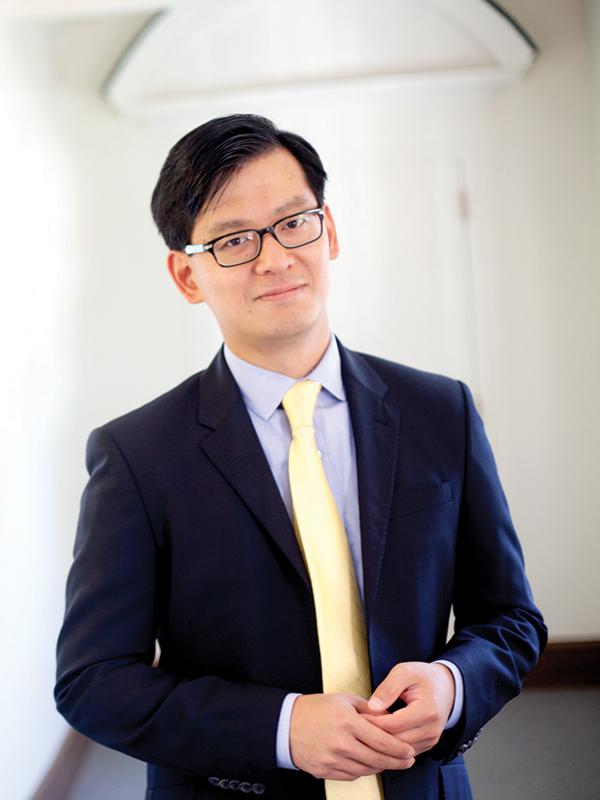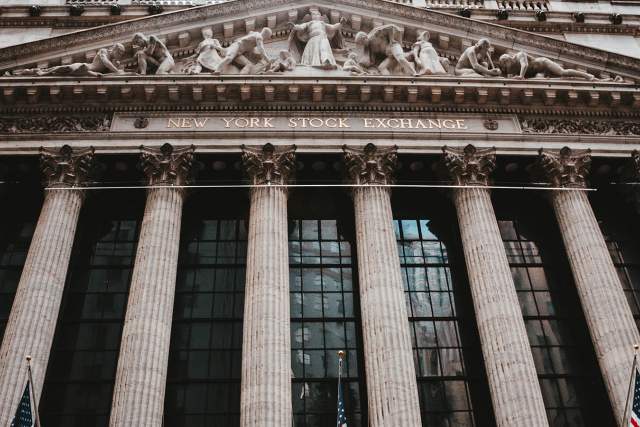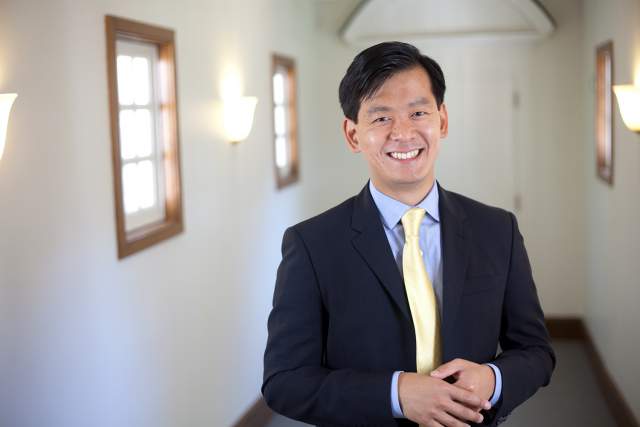Sexual misconduct in the workplace is, tragically, not a new phenomenon. For generations, it existed predominantly as a private experience of an untold number of female victims in male-dominated offices and organizations.
That began to change in October of 2017, after the publication of a story in the New York Times uncovering the serial predation of Hollywood producer Harvey Weinstein over a span of at least 30 years. Ten days after that report, the actor Alyssa Milano tweeted to her followers, “If you’ve been sexually harassed or assaulted write ‘me too’ as a reply to this tweet.” Thousands of people responded within 24 hours, building awareness that sexual assault was not uncommon, and beginning the #MeToo movement that has championed women’s rights and outed dozens of high-profile entertainers, business leaders, and public personalities as perpetrators of sexual harassment or abuse.

Professor Ing-Haw Cheng teaches Capital Markets and Futures and Options Markets at Tuck.
There are myriad cultural, ethical and legal explanations for the rapid rise of #MeToo. One critical piece of the puzzle: an understanding of why sexual misconduct is under-reported, as the flood of accusations after #MeToo suggest. Tuck finance professor Ing-Haw Cheng addresses this question in a new working paper “Reporting Sexual Misconduct in the #MeToo Era.” In it, Cheng and co-author Alice Hsiaw of Brandeis University use a mathematical model based on game theory to examine the tensions that exist in the modern process of reporting sexual misconduct. They show that uncertainty over whether others will also report misconduct makes any one victim less willing to report misconduct themselves. This uncertainty leads to a vicious cycle, or in game theory terms “coordination problem,” where all individuals become less willing to report and to under-reporting.
When sexual misconduct happens in a business environment, victims can report the behavior to the human resources department. But the nature of sexual misconduct is that it often occurs behind closed doors, and there’s usually a lack of physical evidence, so it becomes a “he-said, she-said” situation. “Because of this, HR is likely only going to act on the report if it’s corroborated by reports from others, showing a systematic pattern of behaviors,” Cheng says. That creates a coordination problem: if a victim doesn’t know if others will also report the misconduct, the victim is less likely to report it. “Corroboration provides ‘safety in numbers,’ the co-authors write. “It increases the chances that relevant outside parties will act on an agent’s report and reduces the chances that a reporting agent will face costly retaliation, stigma, or reprisal.”
#MeToo is an extremely important and overdue movement. Economic models will help us trace out both the intended and unintended consequences of this major new force in business and society.
Having established the coordination problem of sexual misconduct in general, Cheng and Hsiaw go on to inquire about when under-reporting is most likely to occur. The answer is somewhat counter-intuitive. They find under-reporting to be the most severe when misconduct is widespread, or when a particular manager’s behavior is an “open secret.” This aligns with the facts of the Weinstein case, where it was discovered that dozens of his “employees, from assistants to top executives, said they knew of inappropriate conduct while they worked for him,” according to the Times exposé. As Cheng explains, “when you don’t know if others will report, the fact that sexual misconduct is widespread doesn’t help. The uncertainty of corroboration is still there, and so is the possibility of retaliation.”
In the third part of their paper, Cheng and Hsiaw model how #MeToo affects reporting. The #MeToo movement has raised public awareness about the prevalence of sexual misconduct. Cheng and Hsiaw show that public awareness encourages victims to report previously-hidden misconduct even in the absence of any other changes. Indeed, #MeToo has arguably led victims of past misconduct to come forward now because the environment has shifted. For example, a few weeks after the Weinstein allegations appeared in the Times, more women came forward and described being raped, sexually assaulted and groped by him, in episodes dating back to the 1970s. And months after that, the actress Uma Thurman publicly told her own story of being sexually harassed and bullied by him. In Cheng and Hsiaw’s model, public awareness encourages reporting by reducing the vicious cycle, as any one victim thinks others are more willing to report bad behavior. Open secrets are less likely to stay secrets.
#MeToo may also have unintended consequences as well, particularly around mentorship opportunities. “Anecdotal and survey evidence suggests that men in senior positions have become reluctant to mentor or meet alone with women in junior positions due to the possibility of subsequent accusations of improper behavior,” the authors write. In Cheng and Hsiaw’s model, that observation is borne out. In an environment where misinterpretations of behavior can lead to misunderstandings, the logical outcome, from a game-theoretic perspective, is a reduction in those one-on-one mentorship circumstances. “If you take it one step further,” Cheng says, “the change in mentorship opportunities will feed back into willingness of victims to report.”
“#MeToo is an extremely important and overdue movement,” Cheng says. “Economic models will help us trace out both the intended and unintended consequences of this major new force in business and society.”

